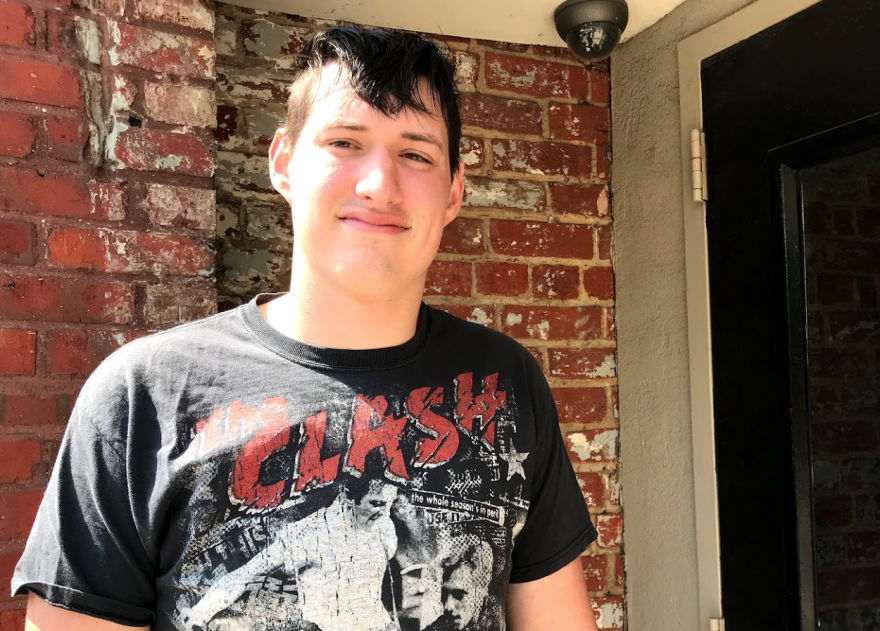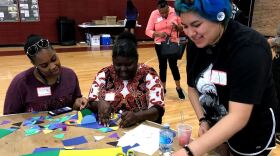If you’re a personal, face-to-face friend of a young African-American man in Asheville named Clifton Peterson, the rest of this story is fake news. But unless proof appears to the contrary, it appears the fake is Clifton Peterson.
Fake profiles are as old as social media itself. What’s notable here is someone using the name Clifton Peterson spent nearly a year creating posts and comments to disrupt, divide, engage and enrage communities on Facebook pages devoted to Asheville Politics and the Black Lives Matter movement.
An expert on what’s called social media trolling believes these were the same tactics utilized in service of Russia to disrupt the 2016 U.S. presidential election. To break it down, the social media trolling that infects national and global political discourse has now gone local.
“I have no idea whether or not the specific Asheville links were the design and orchestrated by the Russians, but there are oftentimes playbooks that are created and then people mimic the activity,” said Sarah Mendelson, a professor of public policy and head of Heinz College, with Carnegie Mellon University. She was an ambassador to the United Nations Economic and Social Council during the Obama Administration and has extensively studied Russian trolling in American and European social media platforms.
“It certainly follows what we know to have happened in the 2016 elections,” she said after examining the details of the Clifton Peterson episode. “The goal, the purpose of this effort is to really sow confusion, increase mistrust in democratic institutions.”
Through nearly a year of Facebook posts, the persona of Clifton Peterson came across as a fierce defender of Black Lives Matter politics but somewhat of a conservative bomb-thrower on the Asheville Politics page.
Enter Evan Kolosna, a tall, dark-haired 25-year-old who wears old Clash T-shirts and works in Asheville’s food service industry. He describes himself as a radical for progressive social movements and is one of the more frequent participants on the Asheville Politics Facebook page.
“I’m probably more addicted to the group than I should be or would like to admit,” Kolosna said. “I want to say I stay up to date on the local issues, which I do, but to be honest, a lot of it is just people getting into arguments.”
Kolosna grew suspicious of Peterson by going back through his posts and comments and documenting what he found to be conflicting statements and sentiments.
“The thing that really started to weird me out was anytime Bernie Sanders came up, then he was on that. He started making posts in both the Asheville Politics and Asheville Black Lives Matter saying Bernie Sanders, there’s a problem with racism in his campaign,” Kolosna said. “A lot of people were agreeing with him—a lot of people on the left—but it seemed like what I would call ‘concern trolling,’ where someone is acting concerned but they don’t have the most positive intentions with that.”
Kolosna searched Google for Peterson’s profile photo and traced it to a news article written in Russian and dated to 2013. Kolosna ran the article through a translation program, which revealed the photo to belong to someone named Jabbar Campbell. That led Kolosna further down the rabbit hole, where he traced the photo’s origins and Campbell to a 2013 article in the New York Daily News.
Further investigation through the North Carolina database of registered voters revealed only one Clifton Peterson, registered in Forsyth County until his death in 2017. The person using Peterson’s name began posting to the Facebook pages in earnest in July 2018.
Kolosna posted his detailed findings to the Asheville Politics and Black Lives Matter Facebook pages. In all, he estimates spending 10 hours on his investigation.
“That’s a pretty heavy accusation to accuse someone of being a fake person, especially when it’s a black man talking about racism and it’s a white person saying ‘you’re disingenuous about that,’” Kolosna said. “If I’m doing this tinfoil-hat Internet detective work, I thought this was something I have to be extremely careful and extremely sure about.”
Mendelson said she isn’t surprised by the granular local nature of trolling. To minimize the effect, she prescribes prioritizing digital literacy to better recognize efforts to manipulate the online conversation. She also wants to see more tech-savvy people run for office.
“There’s a certain element of cat-and-mouse to these technological issues,” she said. “But we’re going to be behind the eight-ball, at least in the parts of the government that can regulate and legislate on this issue, if they don’t understand what the problems are.”
After Kolosna published his findings, his mother, impressed by the work, suggested he pursue a career in Internet Technology Security. Since then, there have been no posts, comments or responses from the Peterson profile. Nobody administering that profile responded to BPR’s personal message through Facebook.




